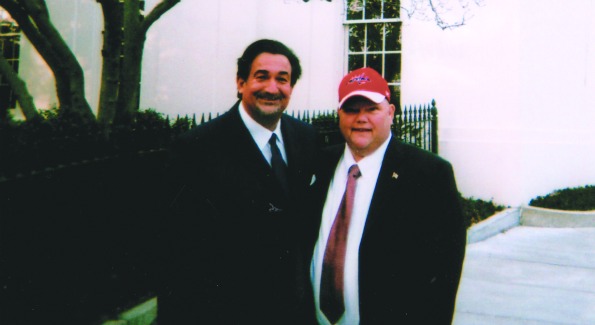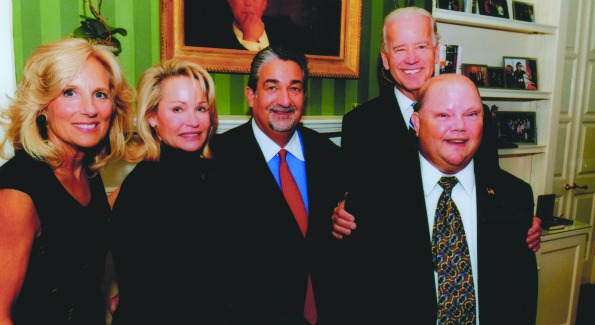An innovative charity flourishes through an enduring friendship and a lasting impact.
By Ted Leonsis
When Maria Shriver and I were classmates at Georgetown University, she introduced me to her parents and her brothers. I developed a unfathomable respect and admiration for the Kennedy and Shriver families, especially for Eunice Kennedy Shriver. I considered her a saint and one of the 10 most important women in our country’s history. Her work touched more lives — mine included — than just about anyone imaginable. As a role model, she was an exemplar.
I also met Maria’s brother, Anthony Kennedy Shriver and found his Best Buddies International (BBI) impressive. The premise behind BBI was noble yet simple: connecting those with intellectual disabilities with other people so that they could create mutually beneficial relationships.
I didn’t have any intellectually disabled friends at that time. I saw people with mental handicaps as separate from the mainstream. Shame on me. I got involved with Best Buddies in 1997, when I was president and vice chairman of America Online. I encouraged Anthony to start using digital coupling, a way to create friendships online via email and instant messaging. This process allowed faster and easier communication between BBI members. The program was called e-Buddies. I helped develop the plan and provided the real estate for the staff in Washington so they could launch e-Buddies, and I backed it financially.
I try to run my philanthropy like I run my business. I do a lot of due diligence, and then I “use the product” before I get emotionally or too financially involved. With e-Buddies, I volunteered to be part of the first coupling. Best Buddies located a young man, Ken Holden, who lives in Tampa, Fla. Thanks to the program, I can honestly say that he is now one of my best friends. A day has not gone by in a dozen years when we haven’t connected in some way.
Over the years, I’ve forgotten that Ken has a disability. He’s just a buddy that I text, email or send instant messages to. We talk about sports, our jobs or something that’s bothering one of us.
I bet we’ve exchanged 10,000 emails since we’ve met. We’ve become something constant in each other’s lives. I’ll be friends with “Big Ken” for the rest of my life.
For me, it’s a part of my social responsibility, as an activist, to be authentic and do the work. For Ken and I, what started out as a responsibility has now turned into an honest friendship. That’s one of the goals of BBI: a normalcy in the integration. I’t s almost a civil rights issue– not to shun but to embrace people with intellectual disabilities.
I believe that more companies should operate a double-bottom-line business. That’s to say that if they do the right things the right way, and they activate volunteerism and charitable giving through their resources, employees, customers and sponsors, they will actually see the creation of enhanced value. These days, I see more business measuring or “metricing” how they give back, applying the kinds of business disciplines to philanthropy and getting 10 times the return on their investment. This is a modern way of managing your enterprise.
My goal is to create an environment with my teams, the Washington Wizards, Capitals and Mystics, and my businesses that celebrates doing the right thing the right way and actively participating in our community. As the majority owner of the sports teams, I would like us to be model franchises, where owners and players realize they have a huge platform on which to create social responsibility and then act on it.
“Big Ken” Holden would have it no other way.


